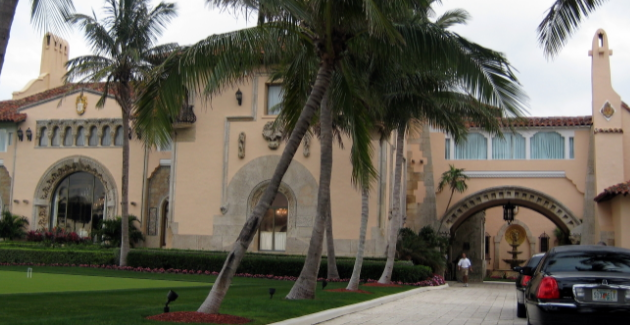At Mar-a-Lago, Trump and Xi both pocket 'wins' but little of substance

The leaders of the world’s two most powerful nations both came out winners from the Mar-a-Lago summit, but for reasons that had little to do with the substance of US-China relations. For that, Australians can rest somewhat easier—at least for now.
For Chinese President Xi Jinping, last week’s summit with US President Donald Trump—long on ceremony and short on substantive outcomes—provided just about everything he could have wanted. Spending nearly 24 hours in Palm Beach with an unpredictable host, he came out of the meetings unscathed. He enjoyed all the respect, equal treatment and chummy photo-ops the occasion could offer. He took no questions from the press and had no unscripted or awkward moments.
Xi would also be pleased with how the meetings were described by Trump and his senior officials—in vague but very upbeat and uncontentious terms. We learnt from the US Secretary of State, Rex Tillerson, that the two leaders had “positive, productive meetings” and they agreed to “work in concert to expand areas of cooperation while managing differences based on mutual respect”. That is soothing music to Xi’s ears.
Perhaps most importantly for Xi, he apparently did not need to deliver any “housewarming gifts” to his host, nor did Trump apparently extract any. There were “frank and candid” exchanges on trade, on North Korea, maritime security in the East and South China Seas, and human rights. But in the end Xi gave few to no concessions on any of these issues. He is no doubt relieved that he did not have to say a word in public—either to the media or in the form of a joint statement—on any of the difficult questions that divide the US and China.
Instead, his only public utterances came at the closing lunch on Friday, where he said the most important outcome of the summit was “deepening our friendship and building trust and a working relationship”. He made no mention of restraining Chinese exports, opening Chinese markets, investing in American infrastructure or dealing with North Korea.
The one big disruption to the summit, the US missile attacks on Syria, arguably robbed the spotlight from Xi and could be interpreted as an embarrassing poke-in-the-eye. But if anything, the military strikes diverted attention away from a summit which was not generating much substance anyway. Indeed, China’s state-run Global Times appeared to praise the US president for his boldness and said nothing about how the attack may have marred his discussions with Xi.
Trump too pocketed some wins. Standing next to Xi and squiring him around the grounds of his Florida estate, Trump looked presidential—something his first months in office have badly needed. He claims to have raised all the tough issues with his counterpart, demanding a level playing field for American workers, urging measures to rein in North Korea and insisting that China adhere to international norms of regional and maritime security.
Trump can also point to an agreement to establish a new “US-China Comprehensive Dialogue”, to be led by the two presidents, and a “100-day plan” for the two sides to deliver a range of trade-related arrangements, the latter presumably to reduce America’s trade deficit with China. (However, in keeping with the Chinese preference to favour tone over agreed outcomes, the official Xinhua debrief on the summit made no mention of any “100-day plan”.)
Australians will take note of post-summit reporting which suggests the Chinese side may allow for the resumption of American beef exports and greater US access to Chinese financial services markets. But nothing has been agreed to yet.
The missile strikes against Syria helped as well. They gave Trump a much-needed diversion away from a summit for which he had no strategy and was ill-prepared, and which in the end had no significant deliverables.
That the two presidents met face-to-face is undoubtedly a good thing. The two sides claim the meeting created a constructive and friendly atmosphere. A high-level dialogue mechanism is now in place to work through the big issues which will continue to divide the two countries. Trump plans to pay a return visit to China later this year.
These developments were good for the two leaders and their standing at home and, for now at least, have put the relationship on a positive footing. But it is not at all clear this summit has done much to defuse the underlying risks, tensions and opposing views which have come to define much of the Sino-American relationship.
Australia and the world will need to watch carefully whether the goodwill can be transformed into good outcomes for this most consequential global relationship.
Dr Bates Gill is professor of Asia-Pacific strategic studies with the Strategic and Defence Studies Centre at Australian National University and co-author, with Linda Jakobson, of China Matters: Getting it Right for Australia.
An earlier version of this piece was published in the Sydney Morning Herald on 10 April.





